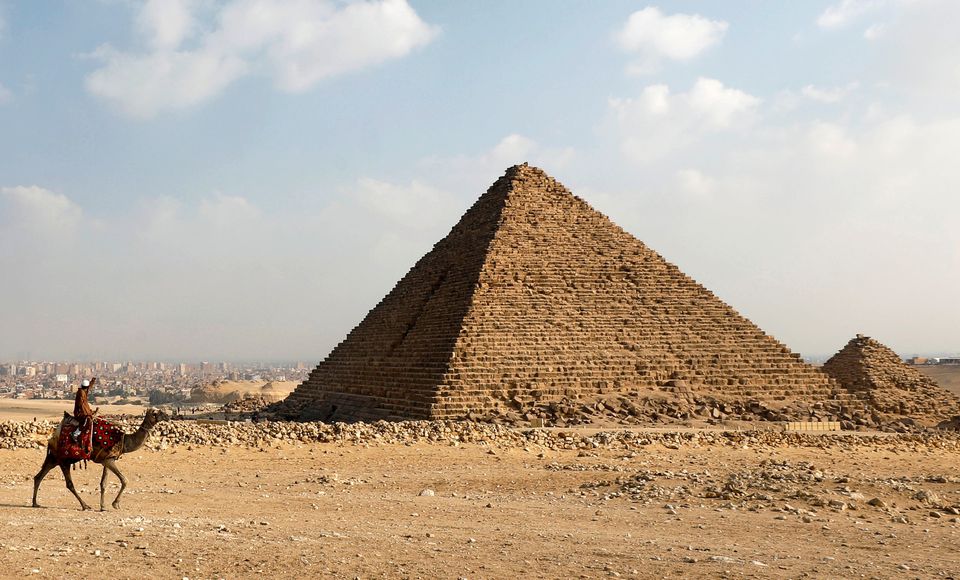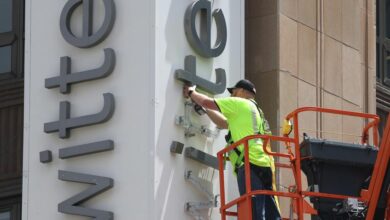Many candidates running for the 28 November parliamentary elections have sought to add electronic campaigning to their tactics in the quest to win a seat for the next five years.
While such technological hype does serve a few functions, its effect in mobilizing voters remains in question, given the various elements that govern the electoral scene, such as financial incentives and tribal support among others.
Candidates have resorted to creating Facebook pages, where they interact with their fans and expound on their electoral promises. For some, this option is meant to reduce the expenses associated with traditional methods of campaigning such as billboards, banners, and events organizing.
Ibrahim al-Gogoury, a MP since 1995 who is running as the National Democratic Party (NDP) candidate in Mansoura, sees the use of technology in electoral campaigns as significant in establishing a direct relationship between candidates and prospective voters.
“I have interacted with thousands of voters via my Facebook page, through which we exchange opinions and discuss reforms that need to be introduced to meet the needs of Egyptian society. It is a two-way communication process that has proven success in promoting mutual understanding, especially with young voters.”
The NDP candidate, who does not use YouTube and Twitter in his electronic campaigning, thinks Facebook is quite sufficient for unveiling his strategies because of its widespread popularity among internet users.
E-campaigning has also become a strategy to confront the security force’s crackdown on opposition street campaigning. Almost all Muslim Brotherhood (MB) candidates have intensified their e-campaigns, aiming to reach wide segments of the population despite the government’s attempts to halt the influential opposition group’s popular outreach.
Farid Ismail, another MP and an MB member, is running in the Delta city of Sharqiya. He said the regime has been tightening the noose on the Brotherhood over the last couple of months.
“Our banners and posters are torn down everywhere, dozens of MB supporters were arrested for distributing the group’s leaflets, and microphones are stripped off cars carrying out election publicity in the streets, with requested penalties reaching LE5000,” said Ismail.
On the other hand, “[The ruling] NDP nominees have been promoting their electoral platforms for a long time without facing any restrictions.”
He added, “I have 10,000 fans on my Facebook account, including citizens interested in transparent elections and media reporters.” The MB candidate uses YouTube to display television talk shows in which he has participated, with the aim of getting the audience to know him better. On his YouTube account, Ismail has also uploaded videos of the parliamentary sessions in which state officials were interrogated by Muslim Brotherhood MPs on various corruption cases.
According to Ismail, MB candidates are using their branded slogan “Together, We Will Change” on websites now, slowly replacing the other main slogan “Islam is the solution”, which has been considered “unconstitutional” by the Supreme Constitutional Court. Religious slogans have been banned in the next parliamentary elections, as according to the government they bear a message of religious discrimination and stand against the principals of democracy.
While the internet is believed to be a safety haven for some candidates, it is also believed that a scrutiny of online spaces is taking place.
On Thursday, five main opposition sites were mysteriously closed, including the official page of former International Atomic Energy Agency head Mohamed ElBaradei, who has been calling for constitutional reforms. The closed pages also included the “We are All Khaled Saeed” Facebook page, which was formed in the aftermath of the alleged torture and killing of a young Alexandrian man by two policemen. The page, which has some 350,000 fans, has been used to call for different forms of protest. All pages were reinstated early on Friday.
For the political analyst Amar Ali Hassan, however, such e-campaigns can never replace essential inter-personal and face-to-face communication between candidates and voters. “Candidates have to directly interact with their voters. Such virtual campaigns can be deceptive,” he said.
In Egypt, traditionally a lot of voting is the product of financial incentives dispensed by candidates, or the web of tribal affiliations candidates can conjure up around themselves. In such conditions, the internet has little presence.
Hassan added that while e-campaigning has gained momentum with the rise of internet use, candidates still cannot reach all 40 million registered voters, many of whom do not have access to the technology. Internet users in Egypt are estimated to be over 16 million.




